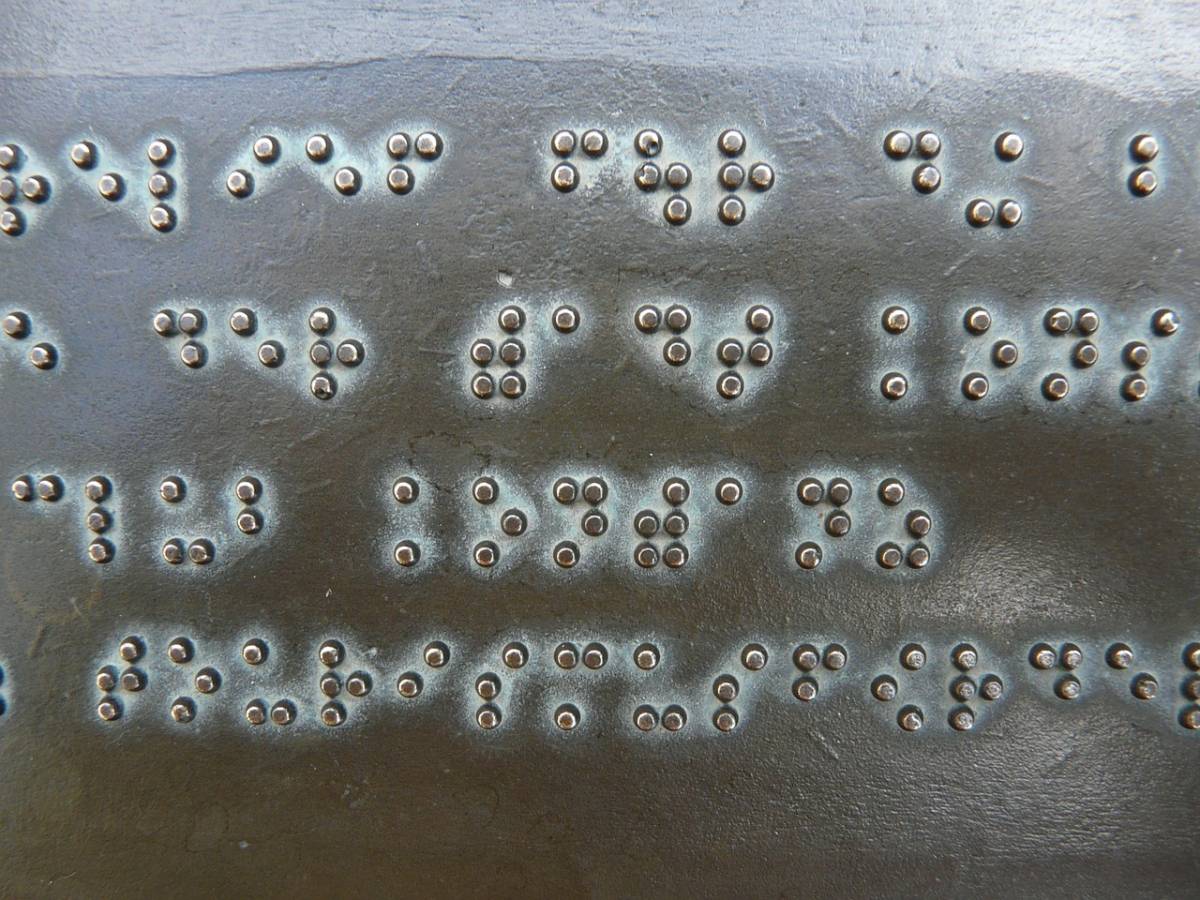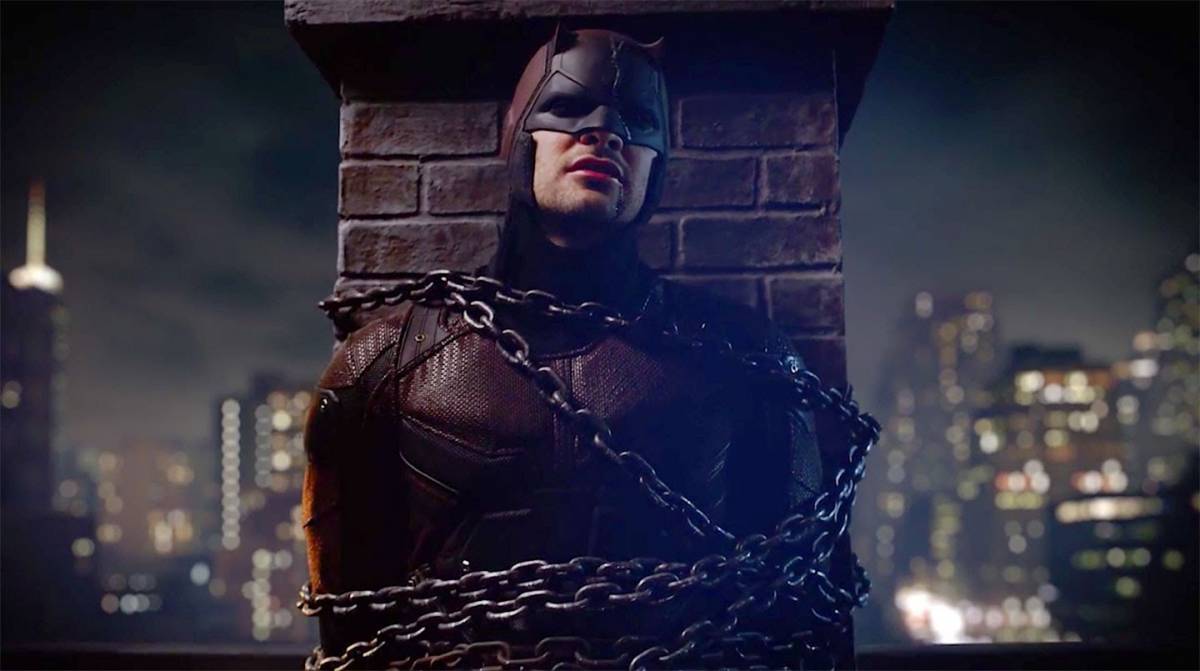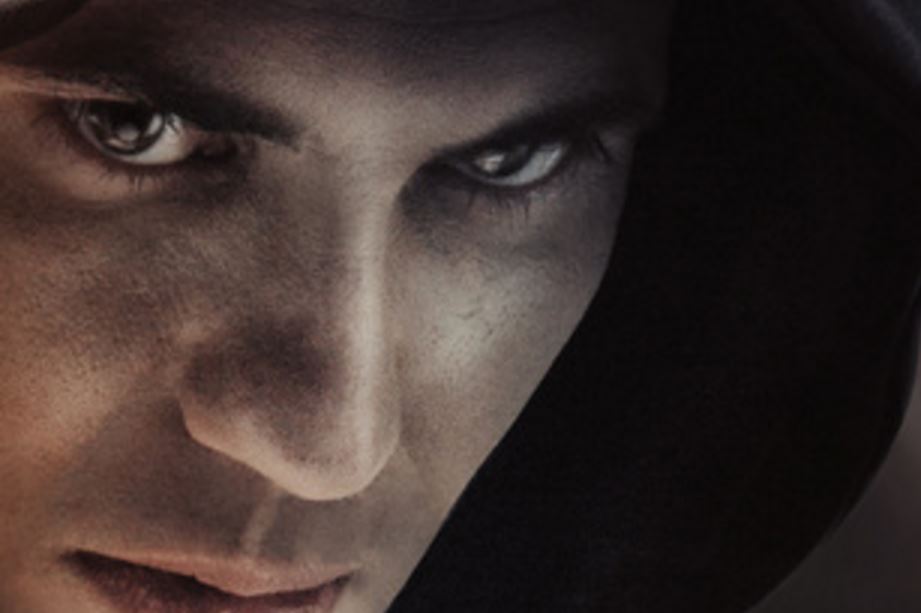I‘ve been trying to write this article for quite some time. There have been numerous half-finished drafts that have approached the subject from different angles that I have discarded for one reason or another. Because, the thing is, disability representation is a hard subject to get right.
And getting it right is the issue that I think is most important. Because I think one of the fundamental things media creators do not realise is, the reason why they get lots of disabled people complaining about misrepresentation, is because of the impact misrepresentation has on the lives of disabled people.
I am blind. I have been all my life and I actually quite like it. Granted, there are things I can’t do, which can be irritating sometimes. But it is my life, it’s a key part of who I am. I doubt I’d be the person I am today if I could see, so I would never change it for the world.
I’ve grown up around many disabled people who are amazing who I probably wouldn’t have met if I could see.
I’ve learnt to read and write Braille. I don’t quite know why I like Braille as much as I do, but that still doesn’t change the fact I think it’s epic, yet it’s something I probably would never have experienced if I could see.

I also think I am more creative than I probably would be if I could see, because I’ve had to solve more problems thanks to having to work around not being able to see. Creativity to me as a writer is very important, therefore I’m glad I’ve had extra opportunities to cultivate it.
But while being blind does change my experience of the world, it doesn’t define me. I still do the things that everyone does, even though I perhaps sometimes do them in a different way.
It doesn’t matter that I wrote this in Braille electronically, then converted the Braille file into a Word document, then copy and pasted that into WordPress. It’s still an article that’s as valid and important as any other article that anyone ever posts on the internet.
But people don’t always see that. Instead, they often assume that being disabled means you cannot do anything. There are some people in-between who have various misconceptions about what disabled people can and cannot do. And there are a few people, who think that being disabled doesn’t have any implications for the way you do things.
But the truth is, most of these assumptions people have are because either they don’t know or they have been misinformed. As many people in the world never come in to contact with a disabled person, because we are a minority, or don’t realise they’ve come in to contact with a disabled person as many disabilities are invisible, they don’t have any experience. And because people don’t know, they assume.

Much of what people assume and how they are misinformed has to do with the media. Particularly in our digital age: we are always online, watching TV or films, playing games, reading books or engaging in some other form of media.
Therefore, it can impact on the way we think about things, because much of our information comes from these sources. So the reason that disabled people complain so much about misrepresentation is that it has a huge impact on the way society perceives us.
One of the key issues is that society seems to automatically assume that disability is a negative thing. Disability, the word itself has negative connotations because of its prefix ‘dis’, which is usually associated with negativity in words such as: disaster, disadvantage, disruption and so on.
I’m not saying disability is all positive. It’s hard having to adapt the way you do things, just to be able to do them because of some limitation as all disabled people do and it’s hard having to put up with regular pain as many of us do. So yes, it can be hard, and I say that from experience.
But that doesn’t stop a person with a disability from having a positive life. They may not achieve all the things a non-disabled person has achieved or do all the things a non-disabled person does, but they can have a fulfilling life. Disability can be and is positive.
Though that is something that’s overlooked by most fictional representations of disabled people. Commonly, the disabled person wants to kill themselves because they are disabled.
Now, there is an argument that there are some people who feel that way and that they should be represented. And maybe that’s true, but the key issue is that they are the main group being represented. The majority of representation of disabled people in mainstream films, TV and books, is about disabled people who want to kill themselves. And those are also the products that get all the attention.

Yet those people are a minority. So maybe they should be represented, but shouldn’t the rest of the disabled community also be represented?
What is more important is the fact that by representing this minority of disabled people, the way they are commonly being represented, media creators are spreading harmful messages that are most harmful to those being represented, as well as to the disabled community and society at large.
I personally know people who were not born with a disability, but acquired it later in life. And I have known some of these people through the period in which they’ve transitioned to having to adapt to their new found disability.
To suddenly have to change your life in what can often be a fundamental way is very challenging, both physically and emotionally. It is hard physically, because people often have to re-learn basic everyday things that they previously took for granted. It is hard emotionally, because people often find that experience overwhelming and often because they have no positive experience of other disabled people, they assume that their disability is all negative and that it has wrecked their life.
It is possible for these people to rebuild their lives. They may have to change the way they do certain things, but as I said earlier, disabled people can and do live fulfilling lives. But they need encouragement and positive support, not messages about how horrible disability is and people wanting to die because of it.
Now, I’m not trying to suggest that all representation of disability should be idealistic and focus on people who are disabled who are really happy and do amazing things. I’m saying that we should represent a range of experiences and that when we represent people who have negative experiences, we should do that in a way that isn’t harmful and offensive.
To illustrate what I mean, let me take a recent example. In 2016, the book Me Before You by JoJo Moyes was made into a film. The story is as follows.
A guy who is into stunts has an accident that leaves him paralysed from the waist down. As a result of this, he is in a wheelchair and feels it will wreck his life. He is given a carer who he falls in love with and who loves him back. However, despite this, he still wants to commit suicide.
The main issue with this is the way it was marketed. There was a Twitter campaign to promote the film with the hashtag Dare to Live Boldly, used to suggest that the decision to commit suicide was “living boldly” because it was supposedly brave.
He is in a wheelchair and yes, that is a hard transition for an active person to make. But there are thousands, if not millions, of people around the world who live happily enough in wheelchairs, who I’m sure could testify to the fact that it is still a life. To live his life and face the barriers of his disability would be the brave thing to do, as many disabled people retaliated on Twitter.
Because, to be honest, to say that it’s brave to kill yourself instead of learning to cope with a disability is highly offensive to the millions of disabled people around the world. What they could have done with this story is used it as a way of showing that what would be brave would be for him to live his life as a disabled person, but they did not.
And this is one of the main types of representation that is publicised. It is narratives like these that get all the publicity and that large audiences engage with. So when we’re complaining, it’s not that we’re being picky about one error, it’s that we’re seeing the same mistakes made time after time. It’s because we feel that we’re not being listened to and that we’re being misrepresented.

youtube.com
Another common issue with disability representation is because people assume disabled people can’t do anything, they either assume that disabled characters cannot be included in certain narratives, such as historical fiction or fantasy worlds that are very dark or they feel they have to give them superpowers that compensate for their disability in order to include them.
One of the most well-known examples of this is Daredevil. His other senses are so overpowered that they compensate for his blindness to the extent that he is not an accurate representation of a blind character. For example, he carries a cane, which he does not always need and can often cast aside.
That is not true of how blind people in the real world experience blindness. We need our canes because we cannot see and they help to make sure that we do not walk into and trip over things. Even then, travelling is something that we have to have frequent training for and often we still have to ask for help from our sighted peers.
But by having Daredevil have overpowered other senses, an opportunity to portray the realities of blindness is being conveniently avoided. This creates misconceptions about blindness. If a person’s only knowledge about blindness is from Daredevil, it is highly likely that they will assume that an actual blind person can do things they cannot actually do.
This situation, again, is offensive to real disabled people, because as a result of the fact that most portrayals of disabled people in sci-fi and fantasy do try to negate or cure the disability in some way, it suggests that people are not wanting to talk about or acknowledge disability.
It spreads the view that disabled people wouldn’t be able to cope in these worlds without a cure or some magic, which couldn’t be more further from the truth. Disabled people who are at peace with their disabilities are highly resourceful. They strive to find ways to achieve the things they want to achieve.
And if people did research and went to the trouble of talking to disabled people, they would realise this. They would be able to create disabled characters, who are complex engaging characters and add depth to their fictional worlds. This would be much better than creating misconceptions about disability.
People often think that disabled people are contradictory because we want to be represented but often complain about the representations that we do receive, but what I think many people do not understand is the impact that that has on our lives. Because disability is conceived as so negative as I have discussed above, people are afraid to interact with disabled people.
Because it is so often pushed aside and not talked about, people don’t know how to talk about it. I’ve often had people be nervous or unsure about whether or not it is appropriate for them to ask me a question about my visual impairment. Now don’t get me wrong, if you walk up to me having never met me and ask me what’s wrong with my eyes without so much as even saying hello, which is something I’ve experienced before, then I’m going to be annoyed.
But generally, especially if you’ve begun to know a person a little bit or you’re in a situation where you don’t know how best to be helpful, just ask. If it’s a personal question you are asking, then be prepared for the fact that the disabled person may choose not to answer and if they display hesitancy or discomfort, you can always remind them that they do not have to answer the question, because they do not.
But I personally do wish people would just ask questions. So I find it upsetting that we find ourselves in a situation where people are reluctant to engage with disabled people. But I think this is a societal problem, linked to the fact that society at large is not used to realistic and honest representations of disability.
These misconceptions have a huge impact on the way disabled people experience the world and in fact add many limitations that shouldn’t exist. Disabled people have issues accessing education, people don’t want to employ them and generally don’t know how to interact with them.
I’ve spoken to countless disabled people throughout my life and the one factor that seems to often dictate how successful or unsuccessful their experiences were where non-disabled people are concerned is attitude.

Did the non-disabled person help the disabled person work around things or couldn’t they be bothered? Did they interact with the disabled person or didn’t they? Did they value the views of the disabled person or didn’t they? Did they treat the disabled person fairly or didn’t they? And much of this is rooted in societal misconceptions of disability.
This societal alienation with disability has become such that people feel afraid to write about disability. I remember going to a talk by a fairly famous author last year. In the Q&A part of the talk, someone asked her if she’d ever considered writing a book with a disabled character in it.
She said that she herself had an eye condition which meant she could still see well enough most of the time at present, the condition will deteriorate and mean she will probably eventually lose all her sight. She said she’d tried to write a book about a character with her condition but had found she couldn’t emotionally do it, because she felt that readers would criticise it because of not understanding the condition. I think it’s a sad thing that some people feel that they cannot talk about disability.
But the stories of disabled people need to be told and they need to be told accurately. It’s amazing how much having people exposed to good representation in an accurate way can make a difference.
To give you an example from my own experience, I met a lady last year who was extremely helpful to me on multiple occasions. When I said to her about how I was impressed with how good she’d been considering she’d probably never met a blind person before, she pointed out to me that while it was true that she hadn’t met a blind person before, she had watched videos by Tommy Edison, a blind YouTuber.
Amongst other things, he does videos on his YouTube channel, where people submit any questions they have about blindness and he will answer them, in an honest and often comical way. So that awareness that she had, put her in a better position to interact with me, because she wasn’t encountering blindness for the first time.
So the reason that we complain is because misconceptions about our situations affect our lives in fundamental ways and it often feels like the world isn’t listening. Because the disability narratives that get recognition are often the ones that misrepresent disabled people, while the ones that do represent them well often don’t receive any attention. But these misconceptions can be corrected through the creation and promotion of accurate disability representation that reflects a range of experiences.
So how can people be helpful?
Actively seek media that has positive representations of disabled people

For example, products that disabled people have been involved in such as: books they’ve written, films or TV they’ve acted in or written or been involved in or games they’ve helped develop. Alternatively, read or watch or engage with products that disabled people have given positive reviews of or have been consulted about. Also, read their blogs, listen to their podcasts, watch their videos. There are sites out there that list these things, there are even some dedicated communities, it’s “>just a case of finding them.
As well as engaging with these things, recommend them

That doesn’t mean that you’ve got to suddenly go on social media and tell the world or run out in the streets shouting about them to anyone who will listen.
It just means when people ask you for recommendations, include these products in your recommendations. Recommend them to people you know, ask them if they’ve heard of the game or book or film or TV show or whatever. If they have, why not start a discussion? If they haven’t, why not encourage them to try it?
Also, try actively seeking out things that have positive disability representation and review them.
This is something that I do, but I will admit I do need to do more of it.
If you’re involved in media, think about how you can positively represent disabled people.

Do research into the disability or disabilities you intend to cover. Contact people who have that disability, particularly people who are passionate about this sort of thing. Generally, as long as you’re friendly and respectful, you should find people willing to help or if they are too busy or do not have the right expertise, to recommend someone else who will.
Most of the people who complain about poor representation do it because they want to see better representation. I’m sure I speak for a lot of people when I say we would gladly help to inform better representation.
That said, bear in mind that disabled people are often busy. We have extra things to take care of because of our disabilities and often end up spending time supporting other disabled people because people in the non-disabled world are unwilling or unable to. We cannot just drop everything and dedicate ourselves to your production.
Engage with products similar to your own that have good representation of disabled people

There are good resources about representation out there on the internet if you search for them. An example of a very good resource in the book world, but that would also be useful to anyone, as you can apply the same ideas to other mediums, is Disability in Kidlit.
Do not promote or engage with products that have negative disability representation

Do not go around telling people these are good representations of disabled people, if you know they are clearly not. If the productions have other merits to them, make sure that when discussing them you’re pointing out the misrepresentation of disability.
So maybe I’ve just spent an awful lot of time shouting out in to the void or maybe this will be useful to someone somewhere out there. I sincerely hope it is useful to someone somewhere, because we need more positive representation. I know it’s hard to get something like this right, but life is full of challenges.
Anything that’s worth doing is hard and challenging, isn’t it?
Some of the coverage you find on Cultured Vultures contains affiliate links, which provide us with small commissions based on purchases made from visiting our site. We cover gaming news, movie reviews, wrestling and much more.


